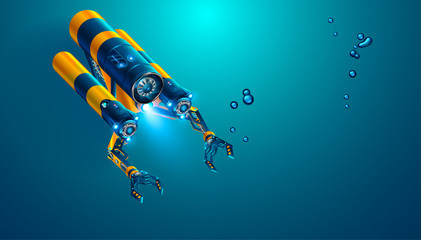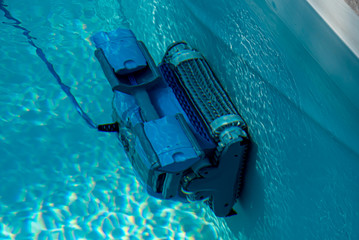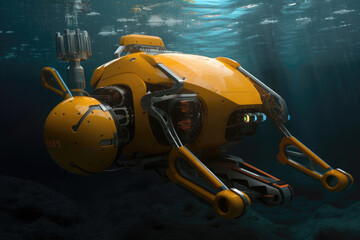Transforming Ocean Conservation with AI
- July 25, 2023
- by
Revolutionizing Ocean Monitoring: AI and Machine Learning to Safeguard Marine Life: The MARLIN Project
Introduction
Ocean science technology innovator RS Aqua, in collaboration with the University of Southampton, has secured funding from Innovate UK to develop an advanced system for monitoring the underwater environment. The MARLIN project aims to create an innovative underwater sensor that leverages machine learning (ML) to identify harmful environmental activities in real time, transmitting vital information to a web application. This groundbreaking technology will allow stakeholders to remotely monitor the ocean and make time-critical decisions like never before.
Article Contents
The MARLIN project will introduce several cutting-edge technologies: ML techniques to distinguish between typical and unusual underwater noises, real-time data connections suitable for remote ocean areas, and a user-friendly interface for easy accessibility.
The impact of MARLIN extends beyond technological advancements. It will aid in the conservation of marine mammals, especially during offshore wind farm construction, where their activities need sensitive monitoring. Additionally, MARLIN's real-time recognition capabilities will help detect illegal fishing activities, leading to better protection of fishing grounds and marine protected areas, preserving them for future generations.
By providing a sustainable and cost-effective method for ocean monitoring, MARLIN will play a crucial role in the growth of the blue ocean economy. The system's ability to reduce the need for large marine vessels for monitoring missions will potentially cut vessel CO2 emissions by up to 75%.
Testimonies
Testimonials from experts emphasize the significance of AI-powered sound monitoring in the underwater world. Dr. Ryan Mowat, Research Director at RS Aqua, expressed enthusiasm for MARLIN's potential in revolutionizing ocean monitoring. Professor of Statistical Signal Processing Paul White, from the University of Southampton, highlighted its role in protecting fragile marine ecosystems and detecting illegal activities.
Conclusion
In conclusion, the MARLIN project, driven by AI and ML technologies, will mark a transformative shift in ocean monitoring capabilities. By safeguarding marine life and preserving valuable marine ecosystems, this innovative system represents a significant leap forward in environmental conservation and sustainable ocean exploration.
Glossary
1. Machine Learning (ML): A subset of artificial intelligence that enables systems to learn and improve from experience without being explicitly programmed. For further understanding do visit my ML and AI article (url: https://www.blogger.com/blog/post/edit/4283887534010148415/363639730484619036)
2. Real-time Data Transmission: Immediate or nearly instant data processing and transmission as events occur.
3. Marine Mammals: Warm-blooded aquatic animals, such as whales and dolphins, that live in the ocean and breathe air.
4. Blue Ocean Economy: The sustainable use of ocean resources for economic growth, job creation, and improved livelihoods while preserving the health of marine ecosystems.
5. CO2 Emissions: Carbon dioxide emissions, a greenhouse gas that contributes to global warming and climate change.
6. Innovate UK: Innovate UK is the UK's innovation agency that supports and promotes innovation in various sectors.
7. Remote Monitoring: Remote monitoring is the process of observing and collecting data from a distance using advanced technologies.
8. Marine Mammals: Marine mammals are warm-blooded animals living in the ocean, like whales and dolphins.
9. Offshore Wind Farm: An offshore wind farm is a collection of wind turbines in bodies of water to generate electricity.
10. Illegal Fishing: Illegal fishing involves catching marine organisms in violation of laws, leading to overfishing.
11. Marine Protected Areas (MPAs): MPAs are designated ocean areas regulated to protect marine biodiversity.






0 comments:
Post a Comment